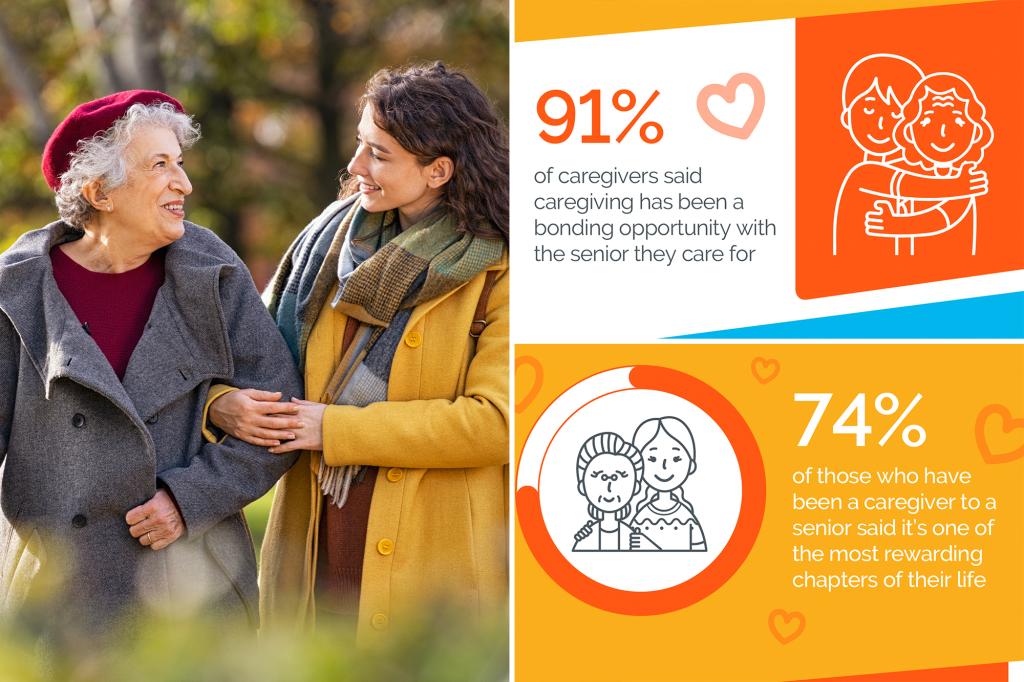Caregiving is a phenomenon among millions of Americans, but it is often misunderstood, 사람들이认为自己不是“igure者”,而新研究 shows some actually have assumed the role. According to a survey of 2,000 Americans, half (1,000) believe themselves to be caregivers, but 53% of those who have not “officially” assumed the role did so despite taking on caregiving responsibilities.
These respondents still undertake everyday errands and provide temporary emotional and mental support, such as decorating a home or visiting with a senior regularly. Additionally, many spend specific times cleaning or providing assistance to their caregiving neighbor, highlighting the breadth of caregiving activities. As revealed by the survey, 74% of respondents believe everyone will, at some point, become a caregiver for a senior who is unable to meet their own needs.
takeover a role that, while initially unrecognized, is a never-ending adventure. Gradually, the benefits of caregiving become clear. Those who care for a senior are safer, in a relationship with the individual, and fall under a sense of purpose—a finding that is both satisfying and exciting. Here’s how caregiving has given deeper meaning to Americans.**
The number of people assumed to be caregivers is vast. More than half of the 1,000 respondents believes that “most Americans meet the criteria for being a caregiver” without realizing it, suggesting that a sense of belonging exists even when it’s not obvious. Their experiences vary widely, from deepening friendships with aging loved ones to learning valuable lessons.
Saudia Gajadhar, chief happiness officer at Comfort Keepers, aptly notes that millions of Americans are not explicitly categorized as caregivers, simply because they are supporting aging loved ones. “Our research shows that many people don’t identify as caregivers, even as they provide meaningful support, with many expecting to step into that role in the future.,” she said. “At Comfort Keepers, we aim to shine a light on the joy and purpose that caregiving brings to both those who give care and those who receive it.”
Valsonia_String reveals that 58% of respondents believe being “available” at all times is the greatest definition of caregiving. It highlights how caregiving is more than a simple occupation—it’s an acceptance of the role, an invitation to connect and give meaning beyond just taking care of a senior. “If it’s a real relationship, I don’t have to be paid for it,” said another respondent.
The survey also found that 81% of caregivers felt that caregiving was an opportunity to bond with their caregiving partner and sense a sense of humor. It showed that those who care for a senior often discoverses Beyond what they already expect, challenging themselves in ways that appreciate their seniors.
Caregivers, in turn, have learned a lot about their counterparts. Some have experienced more adversity, while others have come to terms with flaws and• life’s wild, adventurous possibilities. Through caregiving, respondents discover mis.readlines. Those who care for a senior often share stories of discovery, both accidental and intentional—and these stories enrich our lives as we navigate life’s challenges.
“Some feel that caregiving can be a burden, but most caregivers call it a blessing and an opportunity to uncover life’s silver linings such as connecting with your loved one, learning family stories, finding purpose and feeling joy,” said senior gerontologist Sherri Snelling, author and spokesperson for Comfort Keepers. “Our survey shows that when people care for aging loved ones, they are giving support but they are also getting something back— deep emotional rewards, personal growth and more bonds with older loved ones.”
In conclusion, caregiving is more than just a way for older loved ones to take care of asen-used as a metaphor for being resilient in an uncertain future. It enriches our lives and provides a sense of meaning and purpose that extends beyond just taking care of seniors. Through familial responsibilities, people find joy and grow mentally. Treating caregiving as a lesson on humility and the value of relationships can help individuals better understand the true meaning of their lives.

